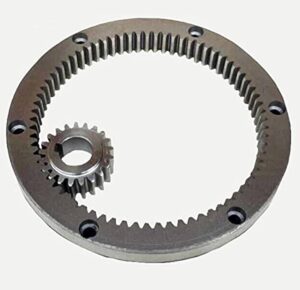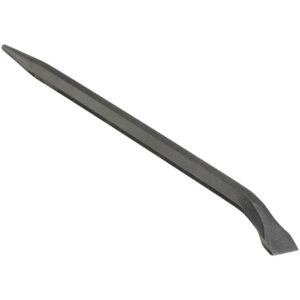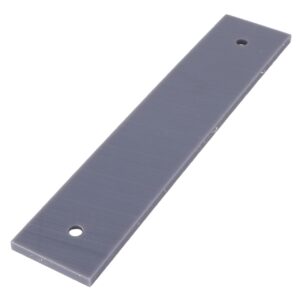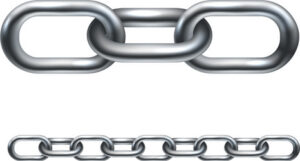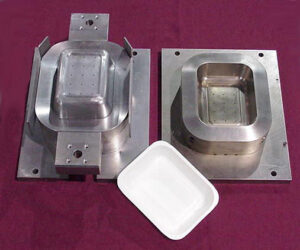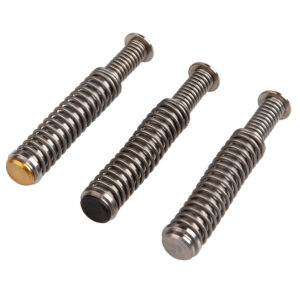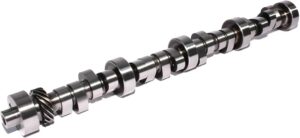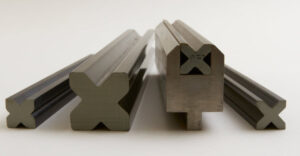How OTAI Steel Solves Quality Problems for Mexican 4140 Steel Adapters Manufacturers
In Mexico, manufacturers of 4140 steel adapters are essential to many industries, from cars to heavy machinery. But keeping the quality consistent is tough. Recently, a leading Mexican manufacturer faced big problems with their steel adapters, so they looked for a reliable supplier who could provide top-quality 4140 steel. That’s when OTAI Steel stepped in with the perfect solutions.
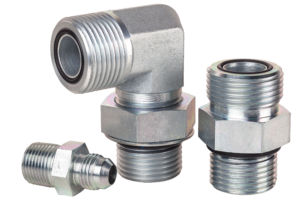
The Challenges in Making 4140 Steel Adapters
Manufacturing 4140 steel adapters that meet high standards is crucial for many companies in Mexico. But, it’s not always easy. Take Industrias Metálicas de México (IMM), led by Carlos Hernandez. They were struggling with several quality issues that disrupted their production and affected their reputation.
The Problems IMM Faced
IMM was dealing with three main issues:
- Inaccurate Dimensions: The adapters often didn’t match the required dimensions, causing major production hiccups.
- Weak Material Strength: The steel didn’t reach the necessary strength, leading to failures during use.
- Poor Material Quality: The steel quality was inconsistent, with frequent impurities and defects affecting the adapters’ performance.
These issues weren’t just hurting IMM’s product quality but also increasing costs and causing delays. Despite trying to fix these problems with their current supplier, things didn’t improve, so Carlos decided to find a better supplier.
The Need for a Reliable Supplier
Carlos knew they couldn’t continue with their current supplier. The ongoing quality issues were too costly and damaging to their reputation. They needed a supplier who could guarantee the quality and consistency of 4140 steel, ensuring their adapters met all the required specs.
After doing some research and getting recommendations, Carlos contacted OTAI Steel. He had heard about our reputation for high-quality steel and our dedication to customer satisfaction. The issues IMM faced weren’t unique, and we at OTAI had a history of solving similar problems for other manufacturers.
How OTAI Steel Solves These Problems
At OTAI Steel, we know how important quality and precision are in making 4140 steel adapters. We take a comprehensive approach, focusing on every step of the production process to ensure our customers get the best products. Here’s how we tackled IMM’s issues:
- Ensuring Accurate Dimensions
IMM’s main concern was the dimensional accuracy of the steel adapters. To address this, we implemented strict dimensional checks at various stages of production. Each batch of 4140 steel is measured precisely using advanced equipment. This ensures every piece meets the exact specifications our customers need.
- Achieving Required Material Strength
The strength of 4140 steel is crucial for its performance in tough applications. To ensure the steel meets the required strength levels, we follow a meticulous heat treatment process, including:
- Quenching and Tempering: Carefully controlled processes to achieve the desired hardness and strength.
- Regular Testing: Conducting mechanical tests, like tensile and hardness tests, to verify the steel meets the specified strength requirements.
By strictly following these processes, we guarantee our 4140 steel has the necessary mechanical properties, giving IMM confidence that their adapters will perform well under stress.
- Ensuring Material Quality
Material quality is key to the performance of steel adapters. At OTAI, we use advanced techniques to ensure the highest quality of our 4140 steel:
- Chemical Composition Analysis: Using state-of-the-art spectrometers to perform chemical analysis, ensuring the steel meets standards and contractual specs.
- Inclusion and Impurity Control: Implementing strict controls to minimize impurities, enhancing the steel’s overall quality and performance.
By focusing on these critical areas, we deliver 4140 steel that not only meets international standards but also exceeds our customers’ expectations.
A Successful Partnership
Since partnering with OTAI Steel, Carlos and his team at IMM have seen a huge improvement in their production quality. The accurate dimensions, superior strength, and consistent quality of OTAI’s 4140 steel have helped IMM enhance their product reliability and customer satisfaction.
Carlos shared his experience: “Switching to OTAI Steel has been a game-changer for us. The quality of their 4140 steel is exceptional, and their commitment to meeting our specific requirements has helped us overcome the challenges we were facing. We can now produce adapters that meet the highest standards, and our customers are noticing the difference.”
Solves Quality Problems for 4140 Steel Adapters Manufacturers
At OTAI Steel, we’re committed to providing high-quality 4140 steel that meets our clients’ diverse needs. Our thorough approach ensures every batch of steel is rigorously tested and meets the highest standards of quality and performance. By partnering with OTAI, manufacturers like IMM can overcome production challenges and achieve excellence in their products.
If you’re facing similar issues with your 4140 steel adapters or other steel components, OTAI Steel is here to help. Contact us today to learn more about our products and how we can support your manufacturing needs with our premium quality steel solutions.
